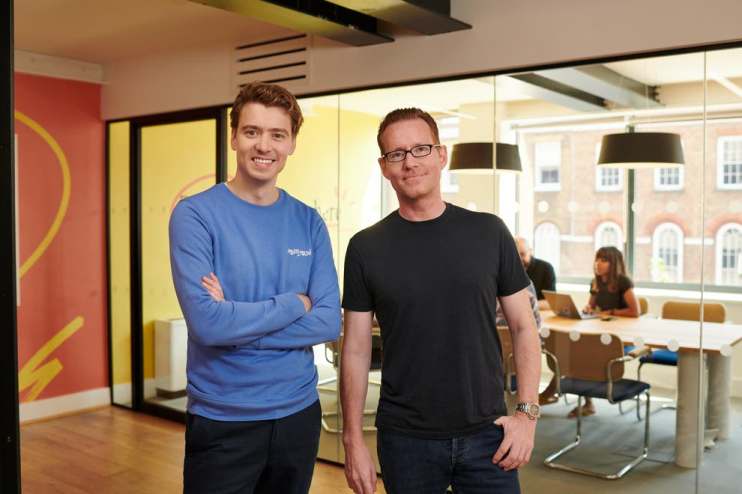Euan Blair’s Multiverse quietly shelves school-leaver mission as growing pains set in

Euan Blair’s educational technology firm Multiverse has quietly shelved its mission of getting school leavers into jobs in a restructuring that former employees claim has created a “cut-throat” culture of “fear”, City A.M. can reveal.
Multiverse, founded by Tony Blair’s son Euan in 2016, has won plaudits and expanded rapidly over the past seven years on the back of bumper funding rounds backed by some of Silicon Valley’s top investors.
The firm fetched a £1.36bn ‘unicorn’ valuation last year when it raised £175.9m from investors including StepStone Group, Lightspeed Venture Partners and General Catalyst.
However, City A.M. can reveal the company is now facing a slew of allegations from former staff who have complained of a “cut-throat” culture “set from the top” as it changes direction and focuses primarily on the “upskilling” of existing employees at companies.
Multiverse has quietly laid off almost the entirety of its ‘early talent’ team tasked with overseeing its programme to get school leavers into the workplace, as its clients slash spending amid an economic downturn this year.
The allegations cast a new light on the feted tech start-up as it pushes towards profitability after six years of losses.
City A.M. spoke with three former staff members who have left the firm in the past year and reviewed numerous complaints about the company’s culture on employee review platform Glassdoor.
Former staff members say Multiverse changed direction quickly after its Series D funding round last year and began to focus primarily on training staff already in work. After Multiverse missed its revenue targets in the first quarter of this year, chief Blair told staff the firm would need to rapidly cut costs and switch from growth to profitability.
I was given a certain percentage point, [and] the team had to be reduced by a certain date.
At the time of the funding round, Blair said “there has never been a more pressing time to create an alternative to university education that is equitable and inclusive and there is an incredible opportunity before us to change the status quo with apprenticeships.”
However, City A.M. can reveal that clients of the firm have slashed spending on training school-leavers. One of the sources told City A.M. its ‘early talent’ team had been “decimated” as part of around 40 redundancies over the past year.
“I actually left because I didn’t really feel like mission that we were selling – to create a diverse group of future leaders – was what we were doing,” another former staff member told City A.M.
“There was a lot of focus on upskilling – so apprenticeships for existing colleagues – rather than bringing new talent in and giving opportunity to disadvantaged individuals, which is why I joined the company in the first place.”
Two of the sources spoken to by City A.M. said there was a marked change in culture at the firm after the company missed its targets in the first quarter.
The people claim that bosses rolled out a widespread pattern of “performance improvement plans” across the company to quickly manage out staff from the firm rather than make redundancies.
One person said they had received orders to slash headcount by a certain percentage point but were not permitted to go through a redundancy process.
“[Performance improvement plans] was what they were using to cut headcount rather than when you do a redundancy – [which is] much more expensive than being able to dismiss someone due to poor performance,” they added. “I was given a certain percentage point, [and] the team had to be reduced by a certain date.”
I overheard a senior manager say that if you weren’t on the verge of a breakdown every day then you weren’t ‘doing sales right’
Two former staff in the sales team claimed internally that sales staff were expected to last around five months before they were let go. Multiverse says the average tenure of its sales staff is 15 months.
“It’s kind of lost its mission and it’s become quite savage,” said one. “[They] don’t know how to deal with employees.”
The firm has also been hit by a deluge of complaints from staff on workplace review website Glassdoor, who have accused bosses of creating a culture in which staff are told they are safe and then “dropped like a fly”.
“The culture is shocking. The phrase ‘toxic culture’ is thrown around a lot but Multiverse embodies this,” one review said on Glassdoor. “I overheard a senior manager say that if you weren’t on the verge of a breakdown every day then you weren’t ‘doing sales right’.
“This unfortunately wasn’t an isolated incident and this kind of thing happened regularly.”
A spokesperson for the company responded saying the description of a senior manager’s comment “is not what we encourage or support in any capacity”.
The push to profitability comes after six years of losses at the high-growth start-up. In its most recent set of accounts in January, the firm made a pre-tax loss of £14.2m last year, while revenues rose from £10.1m to £27.25m.
The overall headcount of the firm has grown by around 100 as it changes direction and pushes into the US.
A spokesperson for Multiverse said: “Throughout Multiverse’s continuing growth we have always reviewed skills sets across our company as teams have changed in size.
“We work hard to progress affected employees into new opportunities inside growing teams, but on a handful of occasions this has meant saying goodbye to valued team members.
“It’s completely normal for companies at growth stage to require different skill sets in key areas, and we’ve been developing our team, and hiring people for the next stage of that exciting journey.”
They added that it has brought in “three executive leaders over the last six months who are deeply focused on the role of employee experience”, as well as adding a “senior director of people experience to add another layer to the support available.”